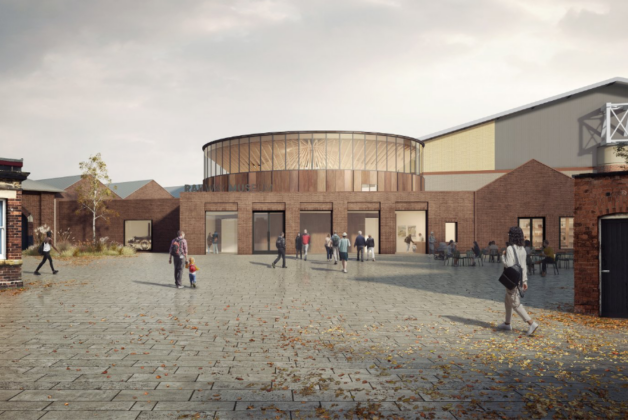Image: Alison McGovern © Parliament (CC-BY 3.0)
Culture secretary Oliver Dowden MP yesterday evening took to the despatch box and delivered the DCMS perspective on last week’s Budget. Despite painting a highly positive picture of the funding announced, not all in the House of Commons were satisfied the culture sector had received adequate provision.
An additional £300 million for the Culture Recovery Fund was one of the central pillars to chancellor Rishi Sunak MP’s pitch that he and the government had done all it could to safeguard the futures of every industry in Britain.
This headline-grabbing figure was supplemented by a further £90 million to help museums and galleries in the weeks leading up to and following reopening, an extension of the furlough scheme, £77 million for culture in devolved nations, and the continuation of a lower 5% rate of VAT.
https://museumsandheritage.com/news/whats-in-the-2021-budget-for-museums-and-heritage-attractions/
The government was confident it had done enough to appease the culture sector. It was clear through Dowden’s rhetoric in the Commons that he too believes the DCMS has come out of the Budget with much to trumpet.
“Our museums, our theatres and our artistic and creative life are not frivolous add-ons; they are essential to our economy and to our national sense of wellbeing, so we stepped up to the plate and protected them,” he told ministers.
We have so much to look forward to as a country – and so many opportunities to revive our businesses and build back better.
My speech at today's Budget debate 👇 pic.twitter.com/iqbGe29zHw
— Oliver Dowden (@OliverDowden) March 8, 2021
The £390 million allotted to “help museums, galleries and theatres open their doors when restrictions finally ease” was an investment “made with our hearts, but also our heads”, the culture secretary went on.
“Cultural and creative businesses are vital to our economy, as they are vital to our national identity and, indeed, our very way of life. They will play a key role as we look to the country’s long-term recovery and renewal.”
Missed opportunity?
One of the first MPs to offer a retort to the culture secretary’s take was the member for Wirral South, Alison McGovern. She asserted that the government had “fallen well short of creating an environment for growth for creative and cultural businesses” by offering no mechanisms for meaningful growth in the coming years.
Citing the £225 billion contributed by the culture sector to the UK coffers in 2018 – making up 12% of the economy – the shadow minister for culture and sport claims the measures announced last week “do not do enough to save jobs and support the growth that is needed in creative industries across the whole country”.

This, the Labour MP added, was “all a mistake because the creative industries deserve to be taken seriously”.
Returning to the 2018 statistics, McGovern highlighted creative industries year-on-year growth of 7.5% – five times larger than growth in the UK economy as a whole – to support her claim that a lack of long-term provision represents “a huge amount of potential that the government simply has not met”.
Concluding her response to the culture secretary’s statement, she asked whether the £25 billion set to be channelled into tax incentives for businesses investing in plant and machinery would “really get the money where it needs to be” at a time when the country is “facing an unemployment crisis and many small businesses are struggling to stay afloat”.
Oliver Dowden has said that government’s roadmap out of lockdown restrictions sets the nation’s museums and cultural attractions “on a course to stand on their own two feet once the country reopens”, adding that the government’s fiscal plans leave the nation in a “position to build back better from the pandemic, leaving us a country that is stronger, safer and greener than the one upended by the coronavirus”.





